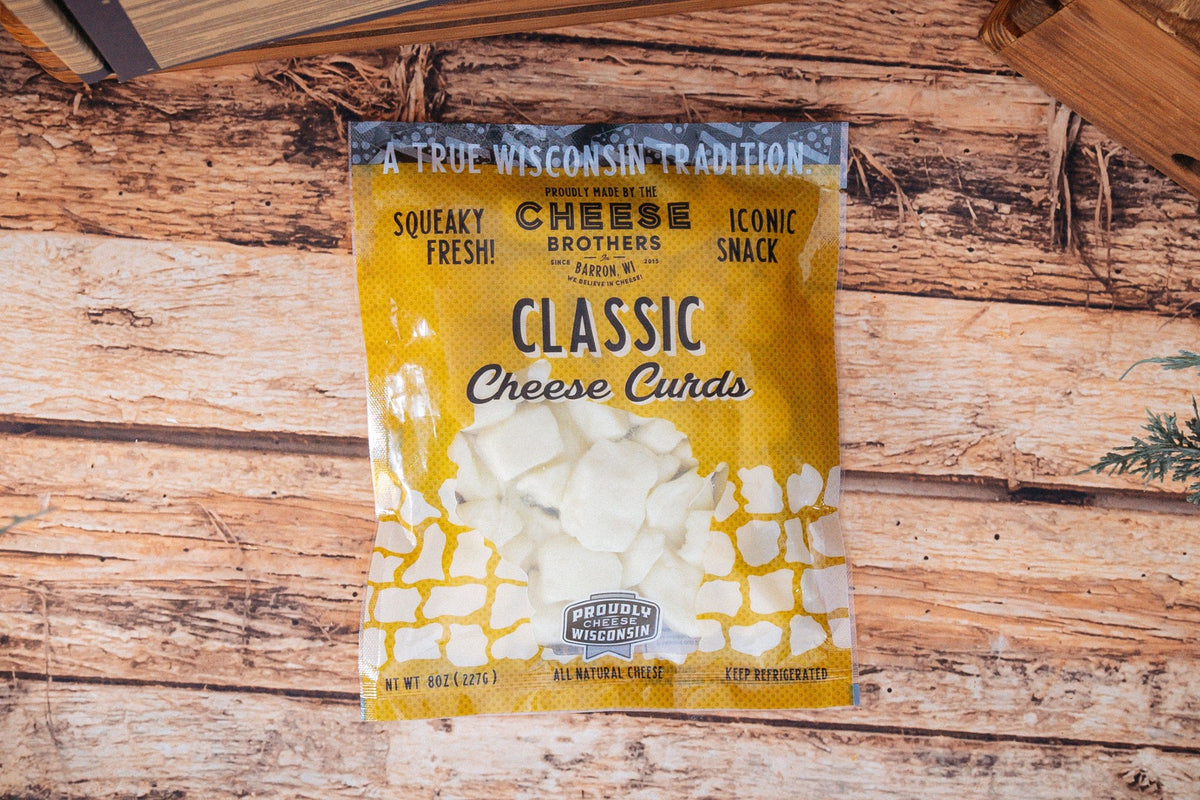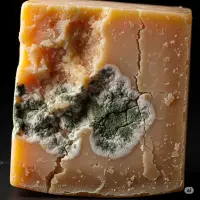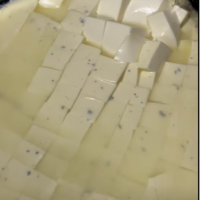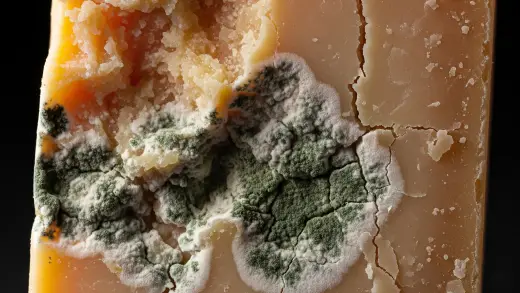Cheese curds can last up to two weeks in the fridge. Cheese curds, a popular snack and ingredient in dishes like poutine, can be quite versatile.
Introduction on How Long Do Cheese Curds Last in the Fridge
If you’re wondering how long they last in the fridge, you’ll be glad to know that they can stay fresh for up to two weeks. Cheese curds are known for their squeaky texture and delightful taste, making them a favorite among cheese enthusiasts.
While they are at their best when consumed fresh, proper storage can help extend their shelf life. Whether you have a batch of homemade cheese curds or store-bought ones, it’s important to know how to keep them fresh to enjoy their deliciousness to the fullest.
We will explore the shelf life of cheese curds and the best ways to store them, ensuring you get the most out of your curd experience.

Credit: cheesebros.com
Storing Cheese Curds Properly
When it comes to enjoying cheese curds, their optimal freshness is essential for the best taste experience. Storing cheese curds properly is crucial in preserving their flavor, texture, and quality.
In this section, we’ll discuss the ideal fridge temperature for cheese curds, separating and wrapping techniques, and the role of vacuum sealing for their longevity.
Ideal Fridge Temperature for Cheese Curds
Properly storing cheese curds starts with maintaining the correct temperature in your refrigerator. The ideal fridge temperature for storing cheese curds is between 34°F (1°C) and 38°F (3°C). This temperature range helps slow down the aging process of the curds, ensuring they stay fresh for a longer period.
Separating And Wrapping Techniques
When storing cheese curds, it is important to separate them properly to prevent them from sticking together and losing their individual shape and texture.
One effective method is to place the cheese curds in a shallow container, such as a plastic or glass storage container, and layer them with parchment paper or plastic wrap. This separation prevents moisture buildup and allows air circulation, which helps maintain the curds’ freshness.
If you don’t have a shallow container, you can also use resealable plastic bags. Simply place the cheese curds in a bag, squeeze out any excess air, and seal it tightly.
Ensure there is enough space in the bag for the curds to move freely without clumping together. Remember to label the container or bag with the date of storage for easy reference.
The Role Of Vacuum Sealing For Longevity
Vacuum sealing is a highly effective technique to extend the shelf life of cheese curds. By removing the air and sealing the container or bag tightly, vacuum sealing helps prevent oxygen exposure, which can lead to oxidation and spoilage.
This method creates a protective barrier that keeps the curds fresh, preserving their flavor and texture for an extended period.
When using a vacuum sealer, ensure the curds are completely dry before sealing to prevent moisture buildup. Place the curds in a suitable vacuum sealing bag, position the open end in the vacuum sealer, and follow the manufacturer’s instructions to remove the air and seal the bag securely.
By storing your cheese curds at the ideal fridge temperature, separating them properly, and utilizing vacuum sealing techniques, you can extend their shelf life and enjoy their deliciousness for a longer time. Follow these tips to ensure your cheese curds stay fresh and delectable until the last bite!
How Long Do Cheese Curds Last In The Fridge?
When it comes to cheese lovers, cheese curds are a popular snack that often raises questions about their longevity.
If you have recently purchased a batch of fresh cheese curds, you may be wondering how long they can be stored in the fridge. In this blog post, we will dive into the shelf life of cheese curds, signs of spoilage, and ways to extend their freshness.
Fresh Cheese Curd Shelf Life
When properly stored in the fridge, fresh cheese curds can last for about 1 to 2 weeks. This timeline varies slightly depending on several factors, including the freshness of the curds at the time of purchase and the conditions they are stored in. The optimal temperature for storing cheese curds is between 34°F and 38°F (1°C and 3°C).
If you plan to consume the cheese curds within a few days, keeping them in the original packaging should be sufficient. However, if you intend to store them for a longer period, it is advisable to transfer the curds to an airtight container or wrap them tightly in plastic wrap to prevent moisture and odors from affecting their quality.
Signs Of Spoiling in Refrigerated Cheese Curds
It’s important to be able to identify the signs of spoilage in refrigerated cheese curds so that you can avoid consuming them when they are no longer safe to eat. Here are some key indicators that your cheese curds may have spoiled:
- Visible mold growth on the curds or in the packaging.
- Unpleasant or sour smell coming from the curds.
- Change in texture, such as excessive softness, stickiness, or a slimy coating.
- Off flavors or a bitter taste.
If you notice any of these signs, it’s best to discard the cheese curds to avoid any potential health risks.
Extending The Freshness of Your Curds
While cheese curds have a limited shelf life, there are ways to extend their freshness and enjoy them for a longer period. Here are a few tips:
- Refrigerate promptly: After purchasing or making cheese curds, ensure to refrigerate them promptly to slow down any bacterial growth and maintain their freshness.
- Proper storage: Store your cheese curds in an airtight container or wrap them tightly in plastic wrap to prevent moisture and odors from affecting their quality.
- Avoid temperature fluctuations: Keep your fridge temperature consistent to minimize fluctuations that can compromise the curds’ quality.
- Consume within recommended time frames: To fully enjoy the freshness of your cheese curds, it’s best to consume them within the recommended time frame of 1 to 2 weeks.
By following these guidelines, you can maximize the shelf life of your cheese curds and ensure that each bite is as delightful as the first.

Factors Affecting Cheese Curd Longevity
Cheese curd longevity is influenced by several factors, such as temperature, packaging, and moisture content. Proper refrigeration can help extend the shelf life of cheese curds, but it is generally recommended to consume them within a week for optimal freshness.
Influence Of Pasteurization On Shelf Life
Cheese curds are a delectable treat that many people enjoy. However, their freshness and longevity can vary depending on several factors. One significant element that affects the shelf life of cheese curds is pasteurization. Pasteurization is a process that involves heating the milk to kill harmful bacteria and extend the product’s lifespan.
In the case of cheese curds, pasteurization plays a crucial role in preventing bacterial growth and enhancing their longevity. Pasteurized cheese curds typically have a longer shelf life compared to those made with raw milk, as the heating process kills bacteria and slows down spoilage.
Impact Of Humidity And Air Exposure
Apart from pasteurization, another crucial factor that influences the longevity of cheese curds is humidity and air exposure. Cheese curds can be sensitive to moisture levels and environmental conditions, which can affect their texture and freshness.
When cheese curds are exposed to high humidity levels, they tend to absorb moisture from the air, resulting in a soft and soggy texture. On the other hand, if cheese curds are exposed to dry air, they can become hard and lose their desirable squeak.
To extend the lifespan of cheese curds, it is essential to store them in airtight containers or wrap them tightly in plastic wrap to minimize air exposure and maintain their optimal moisture levels. By doing so, you can preserve the freshness and texture of your cheese curds for a more extended period.
Cheesemaking Process And Its Role
The cheesemaking process also plays a vital role in determining the longevity of cheese curds. The steps involved in producing cheese curds, such as fermentation, curdling, and draining, contribute to their unique characteristics and shelf life.
During the cheesemaking process, bacteria and enzymes work together to transform milk into curds. These curds are then carefully drained, resulting in the characteristic squeaky texture that cheese curds are known for.
The precise balance of time, temperature, and ingredients in the cheesemaking process is essential in ensuring the quality and longevity of cheese curds. A well-executed process provides the optimal conditions for the curds to develop flavor and retain their freshness for a more extended period.
In conclusion, several factors affect the shelf life of cheese curds. Pasteurization helps to kill bacteria and extend their longevity, while humidity and air exposure can impact texture and freshness.
Additionally, the cheesemaking process itself determines the unique characteristics and longevity of cheese curds. By understanding and considering these factors, you can maximize the lifespan of your cheese curds and savor their deliciousness for longer.

Detecting Freshness And Quality
Cheese curds can last up to two weeks in the fridge if stored properly. It’s important to check for freshness and quality by examining the texture, smell, and appearance before consuming.
Detecting Freshness and Quality
When it comes to cheese curds, freshness is key to enjoying their characteristic squeaky texture and rich flavor. But how long do cheese curds last in the fridge before they start to lose their freshness?
In this section, we will explore the various ways to detect the freshness and quality of cheese curds, ensuring you can fully savor their goodness.
Sensory Evaluation: Texture, Smell, And Color
One of the most effective ways to assess the freshness of cheese curds is through a sensory evaluation. This involves using your senses of touch, smell, and sight to gauge the quality of the curds.
Texture: Fresh cheese curds are known for their squeaky texture. To check if your curds are fresh, gently squeeze them between your fingers. If they feel firm, springy, and have a slight squeak when you press down on them, they are likely fresh. However, if the curds feel mushy or have a slimy texture, it indicates spoilage.
Smell: A pleasant and slightly tangy aroma is characteristic of fresh cheese curds. Take a whiff of the curds and see if they have a clean, milky scent. If the curds have a sour, ammonia-like smell, it is a sign of spoilage.
Color: Fresh cheese curds should have a bright white or off-white color. While slight yellowing is normal for some varieties, a drastic change in color, such as darkening or the presence of mold, indicates spoilage.
Tasting For Acidity and Flavor Profile Changes
Acidity: Fresh cheese curds have a mildly tangy taste, which is a result of the lactic acid produced during the cheese-making process. However, as the curds age, the acidity level can increase, leading to a more acidic or sour flavor. If your cheese curds taste excessively sour or acidic, it may be a sign that they are past their prime.
Flavor profile: While cheese curds are known for their mild and creamy taste, they can develop changes in flavor over time. Pay attention to any off flavors, such as bitterness, mustiness, or a rancid taste. These indicate aging or spoilage of the curds.
By evaluating the texture, smell, color, acidity, and flavor profile of your cheese curds, you can ensure their freshness and quality. Remember, it’s always better to consume cheese curds within their optimal freshness period to fully enjoy their delightful taste and squeaky texture.
Ensuring Maximum Freshness
When it comes to cheese curds, freshness is key to getting the most out of their squeaky texture and rich flavor. Whether you’ve just bought a bag of these irresistible cheese bites or you’re wondering how to make the best use of leftover curds in your fridge, proper handling and refrigeration practices are essential.
In this article, we’ll delve into some tips to extend the shelf life of cheese curds, as well as creative ways to enjoy them even beyond their peak freshness.
Tips For Handling And Refrigeration
To ensure the maximum freshness of cheese curds, it’s important to handle and store them properly. Here are some tips to keep in mind:
- Make sure to check the packaging for any specific storage instructions provided by the manufacturer.
- Keep the cheese curds in their original packaging until you’re ready to use them. This helps to prevent excessive exposure to air and moisture.
- Store the unopened package of cheese curds in the refrigerator at a temperature between 32°F and 40°F (0°C to 4°C).
- If the original packaging has been opened, transfer the remaining curds to an airtight container or resealable bag. Expel as much air as possible before sealing to maintain freshness.
- Label the container or bag with the date you opened it. This will help you keep track of its freshness and prevent accidental consumption of old curds.
Best Practices For Unopened Versus Opened Packages
Unopened packages of cheese curds generally have a longer shelf life compared to opened packages. Here’s a quick breakdown:
| Unopened Packages | Opened Packages |
|---|---|
| The curds can stay fresh for up to two weeks past the “best by” or “expiration” date on the package if stored correctly. | Once opened, cheese curds should be consumed within a week for optimal freshness. |
| Remember to properly seal the unopened package and refrigerate it promptly. | If the curds appear to have changed in color, texture, or smell, it’s best to discard them. |
Usage Ideas for Cheese Curds Past Peak Freshness
Don’t worry if you have some cheese curds that have lost their squeak or are past their prime freshness. There are still plenty of ways to enjoy them. Here are a few ideas:
- Melted on top of a hot bowl of poutine, a classic Canadian dish.
- Use them as a flavorful topping for salads, tacos, or nachos.
- Chop them up and incorporate them into homemade bread or biscuit dough for an extra cheesy twist.
- Blend them into a creamy soup for an added burst of flavor.
- Create a unique cheese sauce by melting them down with other cheeses and spices.
By following these tips for handling and refrigeration, as well as exploring creative ways to use cheese curds beyond their peak freshness, you’ll be able to enjoy these delectable bites to the fullest.
Frequently Asked Questions Of How Long Do Cheese Curds Last In The Fridge
How Long Do Cheese Curds Last In The Fridge?
Cheese curds can last up to two weeks in the fridge if stored properly. It’s important to keep them in an airtight container to maintain their freshness. However, for the best taste and texture, it’s recommended to consume them within the first week.
Can You Freeze Cheese Curds?
Yes, you can freeze cheese curds to extend their shelf life. Simply place them in a freezer-safe bag or container and store them for up to three months. When thawing, make sure to do it slowly in the refrigerator to prevent any loss in texture or flavor.
How Can You Tell If Cheese Curds Have Gone Bad?
If cheese curds develop a slimy texture, an off smell, or mold, it’s an indication that they have gone bad and should be discarded. Additionally, if the curds taste sour or have a bitter flavor, it’s best to avoid consuming them.
Trust your senses and use good judgement when determining if cheese curds are still good to eat.
Conclusion
Knowing how long cheese curds last in the fridge is essential for maximizing their freshness and taste. By following proper storage guidelines and using your senses to determine their condition, you can ensure that your cheese curds remain safe to eat and enjoyable for as long as possible.
So, next time you indulge in these delectable dairy treats, remember to store them correctly for the best culinary experience.















